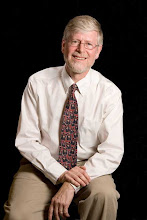I'm quietly circumspect about my faith at school, where it isn't appropriate to be very forward about it for many reasons. Even in my course, "The Bible as Literature," I strive to be discrete and, as is proper, respectful of all perspectives, maintaining an objective tone. But a student who learned about my faith journey emailed me some questions regarding Catholic beliefs and practices, and I'll share my answers here in case anyone else might share this student's polite curiosity, wondering why a Presbyterian academic would choose, late in life, to "cross the Tiber." I apologize in advance for generalities that such a small space may force. I'll spread out the questions-and-answers over a few days, so that there isn't a large chunk of text in the posting.
I'll call the student "Candice" -- it's not her real name.
Dear Candice:
My, what a fine list of thoughtful questions! I'll get to them all, though perhaps not all at once. And I completely understand your comment about how odd certain practices can appear to those unfamiliar with them when visiting a Catholic church as you did, and seeing all the bowing, kneeling, and the use of 'sacramentals' such as 'holy water' and rosaries. Your reaction is quite polite -- many devout Protestants, unfortunately, misunderstand some Catholic practices and dismiss them out-of-hand as empty ritual, as superstitious, or even as idolatrous.
We must admit one of the first things a believer from a Protestant background notices is that for so many people in the pews all of these external practices are, well, external. Habitual. To be fair, the same can be said for Protestants who warm pews dutifully but do not have a well formed or well-informed faith. But there's something else going on here: for many Catholics, 'being Catholic' is like 'being French,' or Swedish or Jewish - it is akin to an ethnic identity. They'll say they were "born Catholic" (the term is "cradle Catholic"). It's a cultural identity, and they are very sensitive about this. Even if they are 'lapsed' or 'non-practising' or Catholics-Behaving-Badly, they define themselves as Catholic by virtue of parentage and their infant baptism. This is very off-putting to many Protestants (I speak of conservative, faith-filled, Bible-believing ones) for whom a conscious and individual response to Christ, preferably in adulthood, is all important. By contrast, Catholics emphasize community, and this is one of the underlying sensitivities that divides Catholics and Protestants culturally. For evangelical-type Protestant Christians, the focus is largely on the 'individual' - partly a legacy of the Reformation and Enlightenment periods' emphases on this idea - whereas for Catholics, the emphasis is on the group (this may be one cultural reason why so many evangelicals are Republicans, who emphasize individual ownership and responsibility, and why many Catholics are historically Democrats, where the emphasis is on shared responsibility and communities - but I digress).
Obviously, Protestants don't ignore community altogether. Nor do devout Catholics deny the need for a "personal relationship" with Christ (a favorite Protestant phrase, though one used often by Pope John Paul II). What I'm describing is a subtle cultural assumption that expresses itself in subtle ways. For example, the preferred creed in Protestant services is the Apostles' Creed, which begins, "I believe in..." In the Catholic Mass, the Nicene Creed is used, which begins, "We believe in..." See that? It's small, yet significant, I think. Both traditions use both creeds; there's no doctrinal divide here. Instead, the difference, though seemingly minor, carries import. Evangelicals talk about making an individual decision and "inviting Christ into your heart." For Catholics, the initiative is quite the other way -- Christ has invited us into His heart, and into His Church, which is His mystical body.
So why am I starting with all this? It's because Protestants encounter a bit of "culture shock" when visiting Catholic churches. Part of it is due to this individual/community difference, which affects everything: liturgy, theology, politics - the works.
On a less theoretical level and a more concrete one -- it isn't the comparatively quiet liturgy that surprises visitors (in fact, it is this contemplative reverence that is attractive) so much as the way many people in the pews seem rather disinterested. Perhaps the most curious thing to believers from conservative Protestant backgrounds is discovering how thoroughly unfamiiar good Catholics are with the Scriptures despite hearing it read every week from the pulpit and within the liturgy. Even so, I have found the most radiant, deep, intelligent and warm believers in this small town church where I am, and the pastor (whose PhD dissertation was on "the image of God" and who is a highly respected bio-ethicist) always has a word from God for me.
Well, to your specific questions:
What drew you, after nearly 35 years as a faithful and theologically-conservative Presbyterian, to the Catholic Church?
(the reply next posting).
Wednesday, March 26, 2008
Subscribe to:
Post Comments (Atom)

No comments:
Post a Comment